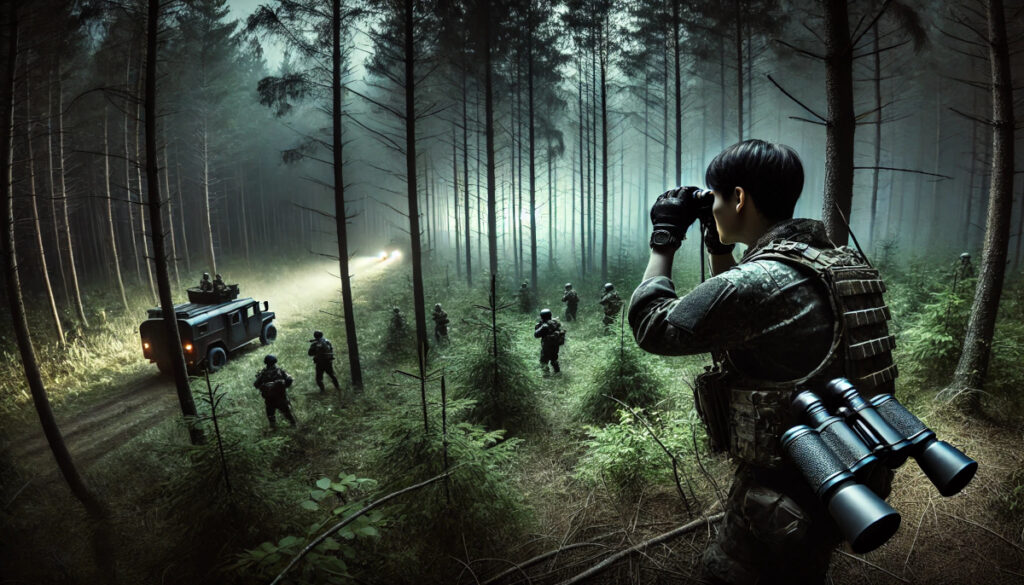
South Korean soldier observing enemy troop movements (DALL-E)
In response to reports that North Korea may deploy thousands of troops to assist Russia in Ukraine, South Korea is considering sending a monitoring team to gather intelligence on these forces and their activities. This marks a significant step in South Korea’s involvement in the Russia-Ukraine war, reflecting broader regional concerns over North Korea’s expanding military partnership with Russia.
Rising Concerns of North Korean Involvement
South Korean intelligence sources indicate that approximately 12,000 North Korean soldiers, potentially including elite units, are being prepared for deployment alongside Russian troops. Satellite images and open-source intelligence have shown what appear to be North Korean soldiers in Russian-held territories, heightening international apprehension. According to reports, the monitoring team’s objectives would include gathering field intelligence, examining North Korean military tactics, and potentially questioning captured North Korean personnel.
South Korea’s National Security Council (NSC) convened to address these developments, issuing a call for North Korea to “immediately withdraw” any forces it has sent to aid Russia. Additionally, South Korean officials warned that an ongoing North Korea-Russia military alliance would prompt a “decisive” response, potentially escalating South Korea’s involvement through increased support to Ukraine, possibly extending to offensive weapons—an unprecedented shift from its previous policy of supplying only non-lethal aid.
Strategic Shift and the International Dimension
South Korea’s evolving response aligns with concerns from NATO and other international entities, which have corroborated reports of North Korean troop deployments. NATO’s recent statements confirmed sightings of North Korean military personnel in Russia’s Kursk Oblast, close to the Ukrainian front lines. The deployment has led to heightened diplomatic tension, with South Korean and international officials warning that North Korea’s support could make Pyongyang an “active belligerent” in the conflict.
Both North Korea and Russia deny the troop deployment, labeling it a rumor propagated to discredit North Korea’s sovereignty and its relationship with Russia. However, the South Korean government remains cautious, implementing “step-by-step response measures” that are flexible depending on the developments between Pyongyang and Moscow. The potential deployment of a South Korean monitoring team reflects Seoul’s proactive approach to mitigate the threat posed by a strengthened North Korea-Russia alliance.
Implications for Regional and Global Security
For South Korea, this situation highlights a critical shift in its national security priorities. Traditionally focused on the Korean Peninsula, Seoul’s decision to intervene—even indirectly—in the Russia-Ukraine conflict signals a willingness to take a firmer stance on North Korean military activities abroad. The potential deployment of offensive support to Ukraine marks a drastic pivot in South Korea’s policy and may have significant geopolitical ramifications, especially as South Korea’s actions reflect a broader desire to counter North Korean and Russian influence in global conflicts.
This escalation serves as a reminder of the interconnectedness of global conflicts and the way alliances and partnerships can reverberate far beyond their initial theaters. As South Korea continues to evaluate its role, its decisions will likely influence future policy directions in East Asia and beyond.








